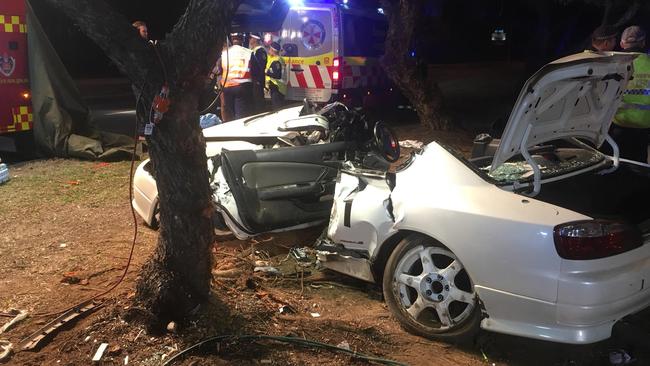The Daily Telegraph editorial: Think and Drive road safety campaign
NO Australian male believes he is a poor driver. Even someone who struggles to escape a supermarket carpark without endangering his insurance premium will typically claim to be above-average behind the wheel.
Opinion
Don't miss out on the headlines from Opinion. Followed categories will be added to My News.
NO Australian male believes he is a poor driver. Even someone who struggles to escape a supermarket carpark without endangering his insurance premium will typically claim to be above-average behind the wheel.
This confidence, often misplaced, only increases as male drivers age. And it may be a significant reason why, for the very first time, our state’s middle-aged male drivers are now more frequently involved in fatal crashes than P-platers and young hoons.
According to Centre for Road Safety executive director Bernard Carlon, older male drivers reserve their riskiest road behaviour for when they are not accompanied. “Mature men say they don’t tend to take risks when they have the family in the car but when they are on their own they think it is OK,” he said.
This is muddled thinking. When you are on the road, you are rarely on your own. Risky driving also threatens other road users, pedestrians, emergency responders and even people who are in road-adjacent properties.

Other factors are also involved. Modern cars are more often than not equipped with traction control, ABC brakes and other advanced safety technologies that protect a wayward driver from the consequences of his mistakes.
A misjudged braking attempt in the rain is quickly corrected by brakes that avoid locking, allowing a driver to maintain control. Where a corner taken too quickly in past eras would have caused a dangerous slide, today’s cars can address this almost before it happens.
A consequence of that technology, however, is when a driver’s incompetence finally overwhelms traction control and ABS, he is typically travelling at a serious speed. Cars may have evolved, but the laws of physics will never change.
A crash at illegal speeds is always life-threatening. Meanwhile, younger drivers who are often demonised for their carelessness or worse while on our roads have apparently responded positively to the introduction 18 years ago of a graduated licensing scheme.
In the nearly two decades since the scheme was launched, the number of young drivers killed on roads has been cut by 50 per cent.
This is a brilliant success story, although of course the ideal outcome would be zero fatalities. Perhaps the government should look at having a graduated scheme for middle-aged male drivers. They could display “O” plates — for overconfidence.
AFL LESSON FOR DIVING DIVAS
IT isn’t every day that a Brazilian football star receives a lesson in resilience from an AFL goal umpire, but yesterday was just such an occasion. Sydney Swans fans watching yesterday’s victory over Melbourne recoiled at an accidental collision between 100kg Demons defender Oscar McDonald and slightly built Chelsea Roffey. To everybody’s great relief, however, Roffey immediately stood up and continued officiating.
Compare that with the diving antics of Brazilian forward Neymar during the recent World Cup. Let’s hope Neymar sees a clip of Roffey and in future thinks better of faking injury.
FENCES AREN’T THE ISSUE
WHEN did children’s play areas become such a contentious issue? Why do we now have councils arguing about not only playgrounds but also the fences that surround those playgrounds? The Blue Mountains City Council has called for a “limit” on fencing around play spaces because it “cages” children’s play and stops them from reaching their full creative potential.
As well, the council is worried about fences providing “opportunities for bullies to corner their victims” and reducing the “perception of immediate parental responsibility”.
At a quick glance, the council may have a point. Limits on children’s activities and a too-great emphasis on complete injury avoidance can be deleterious to a child’s emotional and physical development. But mere fences are not a major part of the problem, surely. Fences don’t move. They don’t present any risk. They just, well, contain a certain area.
As always, child and adolescent psychologist Dr Michael Carr-Gregg offers a sound view. He points out that playground fences afford parents a well-deserved break from worrying about their kids. Keep the fences. Reduce the rules.
